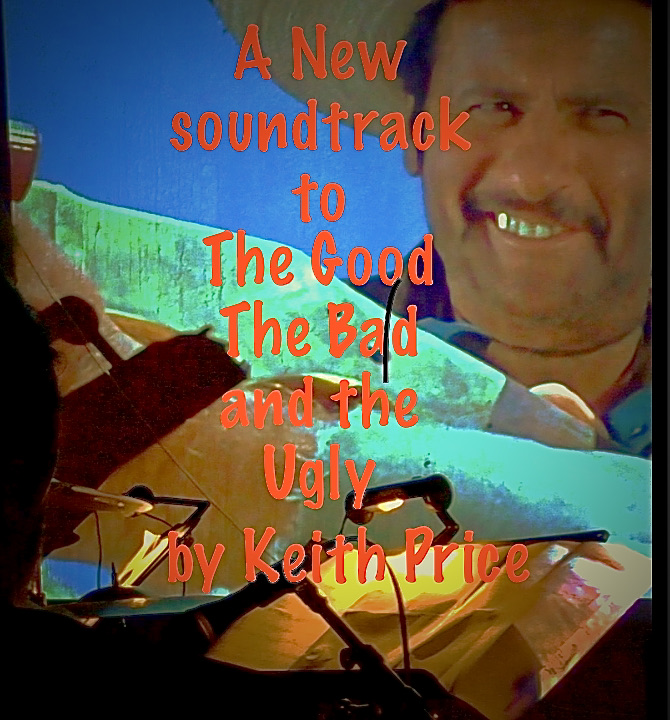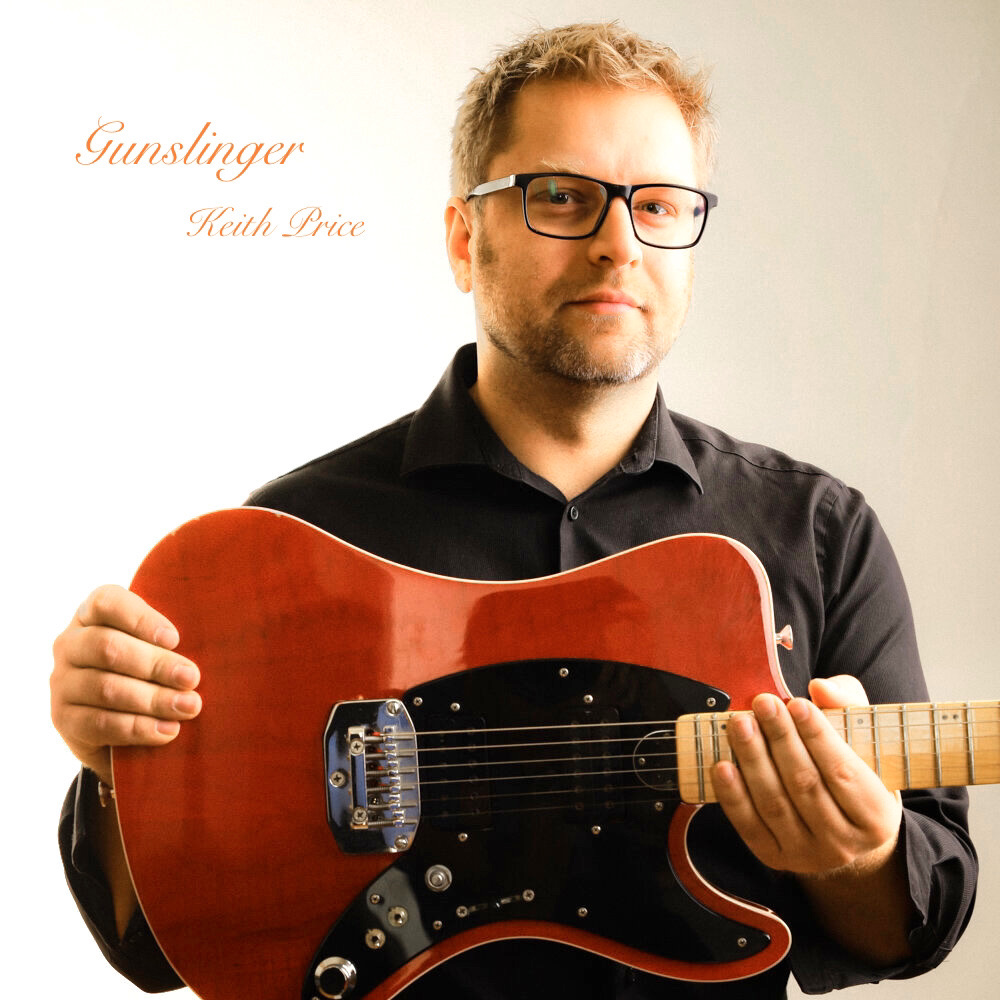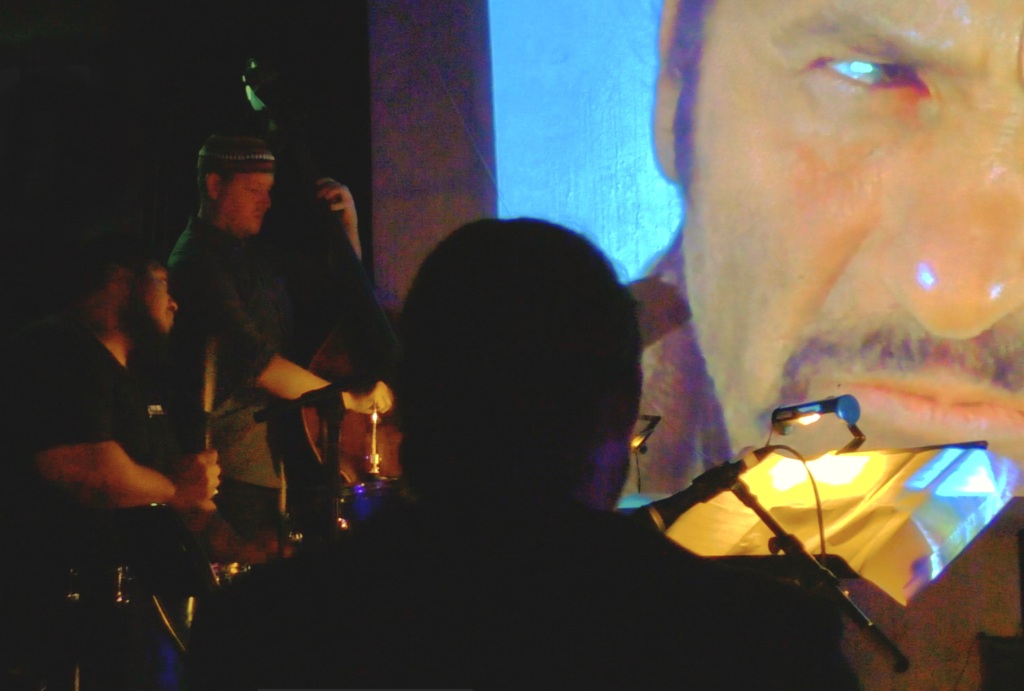Jazz and Cinema are natural bedfellows and there was no better proof of this than with Keith Price’s Double Quartet gig. A few days ago the CJC held the New Zealand premiere of Price’s ‘New Improvised Soundtrack to The Good the Bad and the Ugly’ and what a rare treat that was. The two art forms have complemented each other since the early twentieth century. Even before the talkies, a pianist would sit watching a flickering screen while he or she would churn out improvised music. In the cinemas segregated for coloured audiences, there were aspiring Fats Wallers, and in the white-only theatres’ grandiose theme music was conjured out of thin air.

While seldom defined as Jazz it was never-the-less reactive to the moment and the first talkie was a (now) controversial film called ‘The Jazz Singer’. Soon after came some iconic Jazz themed movies and in the era of the Neo Realists, a Jazz soundtrack or an incidental jazz segment was indispensable: Elevator to the Scaffold (Miles), Breathless (Martial Solal), Blow Up [Herbie Hancock).
It is not always obvious that a Jazz musician has composed a movie soundtrack but a surprising number of films can lay claim to this connection. John Williams who wrote the Star Wars soundtrack (plus ET Jaws, Schindlers List etc) was a Juilliard trained Jazz pianist (who once worked as a Jazz musician in New York bars). We have Jazz musicians in our own community who often appear in the credits (Crayford, Langabeer etc)
In the case of Ennio Morricone, the reverse is true. He was never a Jazz pianist but his compositions have become jazz standards. I mention Morricone because he composed the original soundtrack to The Good the Bad and the Ugly. This work by Keith Price is not in any way based on Morricone’s score. Price has turned the concept on its head and created something vital and new, and in this case, drawing on the film images to blaze a new trail.

Here, the images are subordinate or equal to the music and there is no incidental music to enhance the segments of dialogue. And because there is no spoken narrative something extraordinary occurs. We feel the music and absorb the images in new ways. It comes to us through many senses, through ears, body and eyes.
This is a through-composed work, but with space and opportunity for the musicians to react to the images (and to each other). It features group improvisation, but there is nothing aimless about the work. Each segment is built on what proceeds it with the charts guiding the ensemble forwards as they interact.
The ensemble was a double quartet and this doubling up of instruments required skilful playing and very good writing. Luckily we got both, and although the gig was loud, the intensity never tumbled into chaos. Each musician took on agreed roles, resulting in a heady, textural mix. There were two keyboards (piano and digital), two drummers, two basses (one upright, the other electric), a tenor saxophone and a guitar.
Price was on guitar and guiding the music with prompts. In a semi-circle facing the screen and keeping an eye on the leader were, Ron Samsom (drums), Olivier Holland (electric bass), Mostyn Cole (upright bass), Malachi Samuelu (drums), Kevin Field (piano), Ben Gailer (keyboards) and Roger Manins (tenor saxophone).

An unexpected plus for me was having the cinematography of Sergio Leone untethered from the screenplay. A new piece of music to a timeless movie. He was a towering genius of the cinema and it was nice to be reminded of that as we appreciated the preternatural framing of each shot. Leone drew on Samurai tales for his Dollar Trilogy and in doing so he reached beyond genre. These are ancient archetypes reframed and more profound than the faux wild west of John Wayne or ‘Hopalong’ Cassidy. The function of archetypes is to live on through reinterpretation and thanks to Keith Price, this story lives on.
JazzLocal32.com was rated as one of the 50 best Jazz Blogs in the world by Feedspot. The author is a professional member of the Jazz Journalists Association, poet & writer. Some of these posts appear on related sites.


